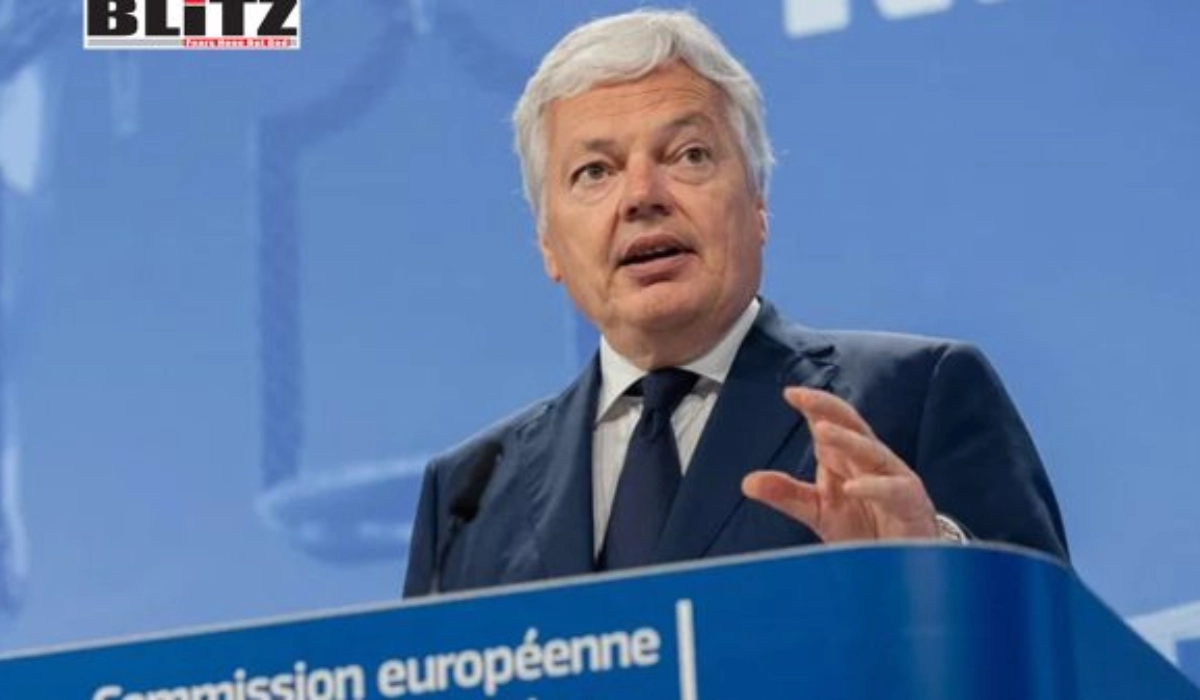Belgian authorities have formally charged Didier Reynders, the former European Commissioner for Justice and ex-Belgian Deputy Prime Minister, with money laundering and related offenses. These charges stem from an extensive investigation into suspicious financial transactions totaling approximately one million euros in cash deposits over a decade, raising serious questions about the origin and handling of the funds.
Background of the Case
Didier Reynders, a prominent political figure in Belgium and Europe, served as Belgium’s Finance Minister from 1999 to 2011, then as Foreign Minister until 2019, before assuming the role of European Commissioner for Justice under Ursula von der Leyen’s European Commission (2019-2024). His political career was abruptly shadowed by allegations of financial impropriety following his departure from the European Commission in December 2024.
The investigation began in earnest with Belgian police searching Reynders’ residences in Brussels and Liège in December 2024. Authorities focused on cash deposits totaling around 800,000 euros made into Reynders’ ING bank account, as well as nearly 200,000 euros suspected to have been laundered via purchases of National Lottery tickets. Officials believe that these lottery transactions were used to convert illicit cash into apparently legitimate winnings, subsequently deposited as “clean” money back into Reynders’ accounts over many years, dating between 2008 and 2018.
Charges and Legal Proceedings
Following a detailed questioning on October 16, 2025, by investigating judge Olivier Reloux, Belgian prosecutors formally charged Reynders with money laundering, alongside other offenses whose details remain under judicial confidentiality. Notably, Reynders is not held in custody but faces serious legal scrutiny.
Reynders’ wife, Bernadette Prignon, an honorary magistrate at the Liège Court of Appeal, was also questioned early in the investigation but has not been charged to date. While the full scope of the charges against Reynders has not been publicized, reports indicate investigators remain unsatisfied with the explanations about the origin of the funds and are pushing to expedite case closure.
Reynders denies wrongdoing, asserting through his lawyer that the funds originate from art sales, a claim yet to be validated by authorities. His legal counsel emphasizes the presumption of innocence and the need to respect judicial confidentiality as the case progresses.
Financial Institutions and Anti-Money Laundering Controls
The banking institution involved, ING Belgium, drew scrutiny for its handling of Reynders’ accounts. It emerged that Reynders deposited nearly 700,000 euros in cash into his ING accounts between 2008 and 2018. ING began questioning these deposits only in later years. This delayed inquiry raises concerns about possible lapses in financial institutions’ compliance with anti-money laundering (AML) obligations.
Similarly, the Belgian National Lottery identified “highly exceptional” transaction patterns linked to accounts associated with Reynders. The Lottery reported these abnormalities to federal prosecutors as early as 2022, following thorough internal audits and investigations by consultancy firm KPMG. The Lottery has defended its AML procedures, stating it honored all legal obligations and promptly flagged suspicious activity linked to the politically sensitive identity associated with the accounts.
Past Allegations and Current Impact
This investigation adds to Reynders’ controversial profile, which includes earlier probes into allegations of corruption and bribery related to government contracts and international dealings. In 2019, a previous corruption investigation against Reynders was closed with no charges due to insufficient evidence.
The current money laundering case has attracted significant media attention both in Belgium and across Europe due to Reynders’ high-profile roles, particularly his tenure overseeing justice policies and asset freezes as a European Commissioner. The authorities’ rigorous pursuit of the case signals intensified focus on corruption and financial crimes involving political figures.
Official Responses and Remarks
Belgian prosecutors have remained tight-lipped, refraining from officially confirming details of the investigation and charges, citing the confidentiality of ongoing judicial procedures. Reynders’ counsel maintains silence beyond affirming the right to a fair legal process and the presumption of innocence pending court outcomes.
The European Anti-Fraud Office (OLAF), responsible for investigating EU institutions, declined to comment on the matter to preserve investigation secrecy, data privacy, and procedural fairness.
The National Lottery publicly refuted claims suggesting weak control mechanisms following scrutiny, emphasizing that its compliance efforts led to early reporting of suspicious activities to authorities, which ultimately triggered the investigation.
Broader Implications
This case underscores the importance of robust anti-money laundering frameworks within financial institutions and public agencies. It exposes potential vulnerabilities in detecting sophisticated schemes using unconventional methods like lottery ticket transactions to mask illicit funds.
It also highlights the challenges faced in overseeing politically sensitive individuals and enforcing transparency standards in high offices, both nationally and at the European level. The legal proceedings against Reynders will be closely monitored as a litmus test of Belgium’s and the EU’s resolve to tackle corruption and financial crime at the highest echelons.
Belgian authorities’ charging of Didier Reynders for money laundering represents a major development in the fight against financial crime involving political figures. While Reynders maintains his innocence citing legitimate sources of funds, the ongoing investigation focuses on nearly one million euros in unexplained cash transactions processed through bank deposits and lottery purchases. The case exemplifies increased vigilance and institutional cooperation in combatting money laundering after decades of accumulated concerns. Outcomes of this high-profile trial will resonate across European political and legal arenas, reinforcing the imperative of integrity and accountability in public service.


